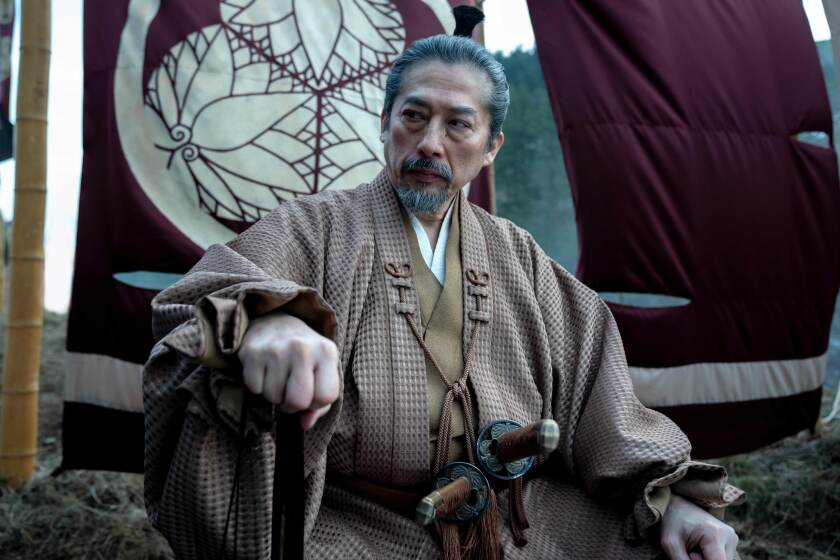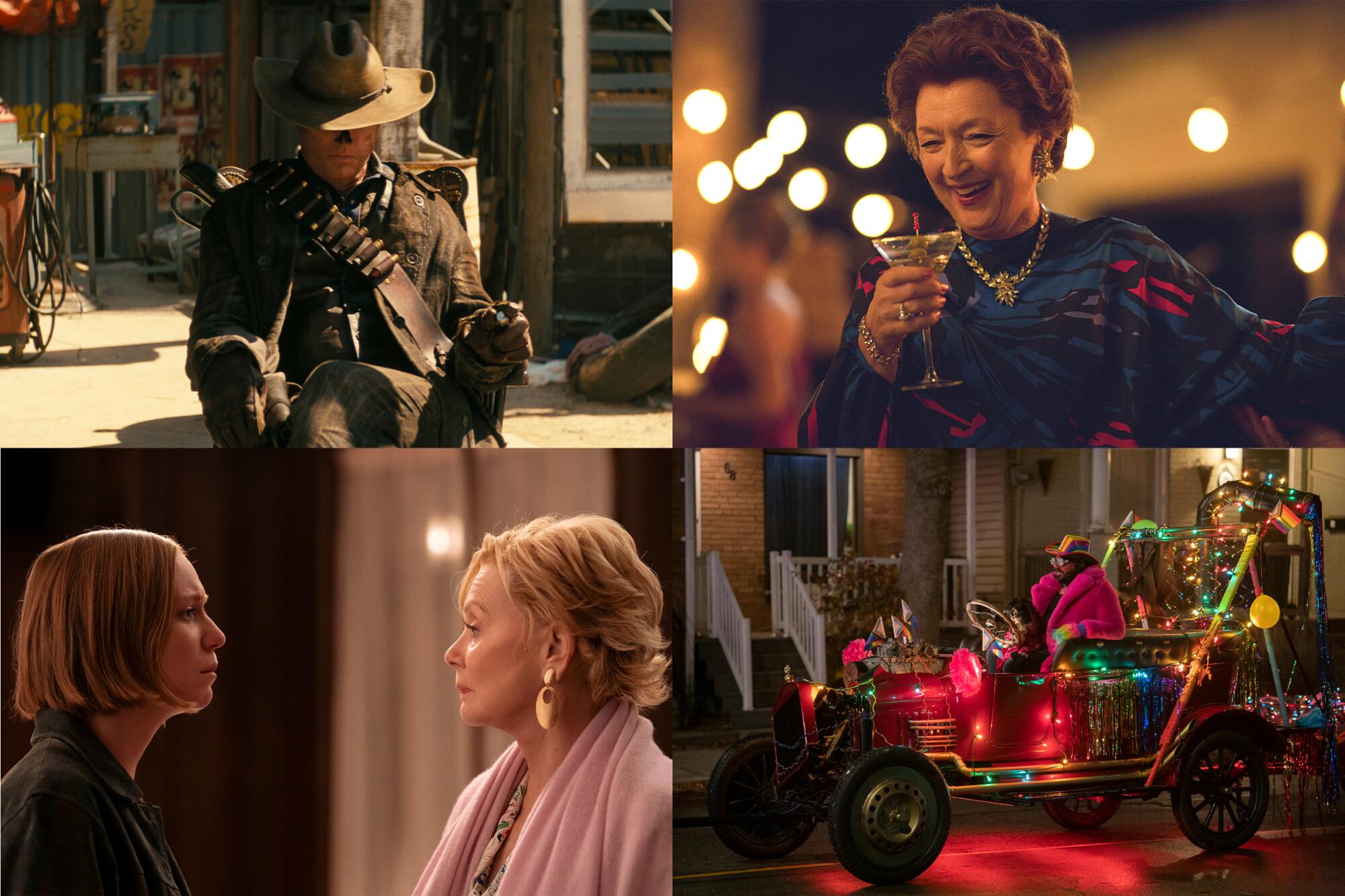
Can a whole episode of a TV show be boiled down into one single — if key — scene? Maybe that shouldn’t be the case, but at The Envelope we like to say, “Heck, yeah!” True: One scene alone can’t win a show an Emmy Award but, in context, the most notable scene in a nominated episode absolutely underscores what makes a particular show unique, powerful, moving … and worth watching. So once more with feeling: According to the nominated writers and producers of this year’s comedy and drama writing nominees, these are the key scenes that will unlock their stories for you.
COMEDY
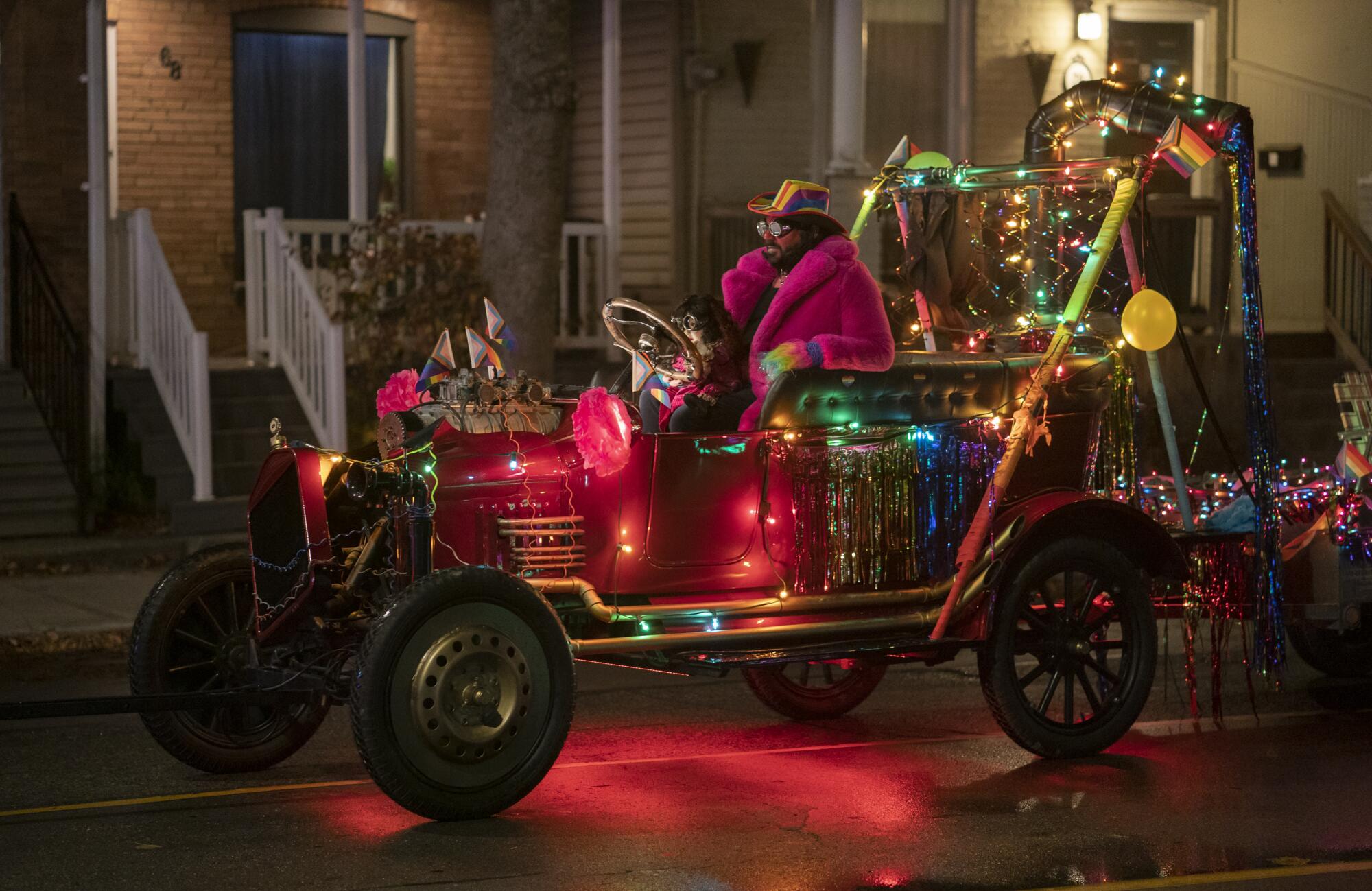
‘What We Do in the Shadows’ (FX)
Episode: “Pride Parade” (written by Jake Bender and Zach Dunn)
Here’s the key: Nandor crashes down from space as Laszlo and the other vampires host their neighbor Sean’s Pride parade.
The big deal: “Our goal was to ground this potentially insane outer-space storyline by rooting it in Nandor’s insecurity,” Dunn writes in an email. Adds Bender, “The physics of Nandor flying up to space and plummeting back to Earth probably wouldn’t hold up to scientific scrutiny, so we’re hoping Neil deGrasse Tyson never watches this.”
The comedian isn’t up for playing Tim Walz — or hosting the Oscars again — but that’s because his priorities have changed. The constant? Nailing a good joke.
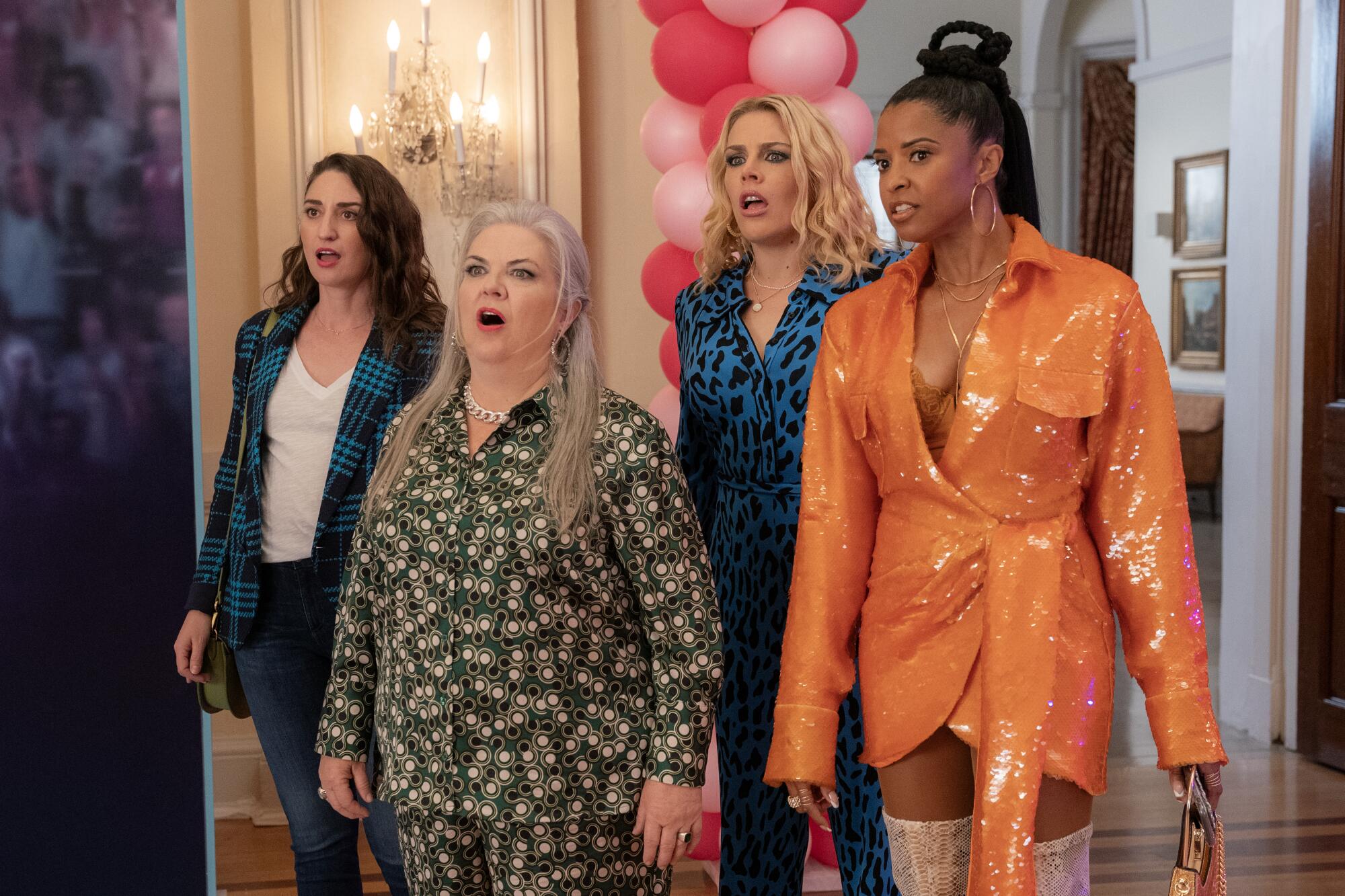
‘Girls5Eva’ (Netflix)
Episode: “Orlando” (written by Meredith Scardino and Sam Means)
Here’s the key: Taffy, a longstanding Girls5Eva fan who’s now married to a billionaire, throws herself a birthday party and brings the band along. Dawn sees her as a figure of pity.
The big deal: Taffy turns out to be more clear-eyed about her motivations than Dawn realizes, and Dawn begins to respect the nostalgia factor for her band. “She might be embarrassed by the bad messages they were sending back then, but there’s something she misses that she can tap into now, that fearlessness when you’re younger,” Scardino says.
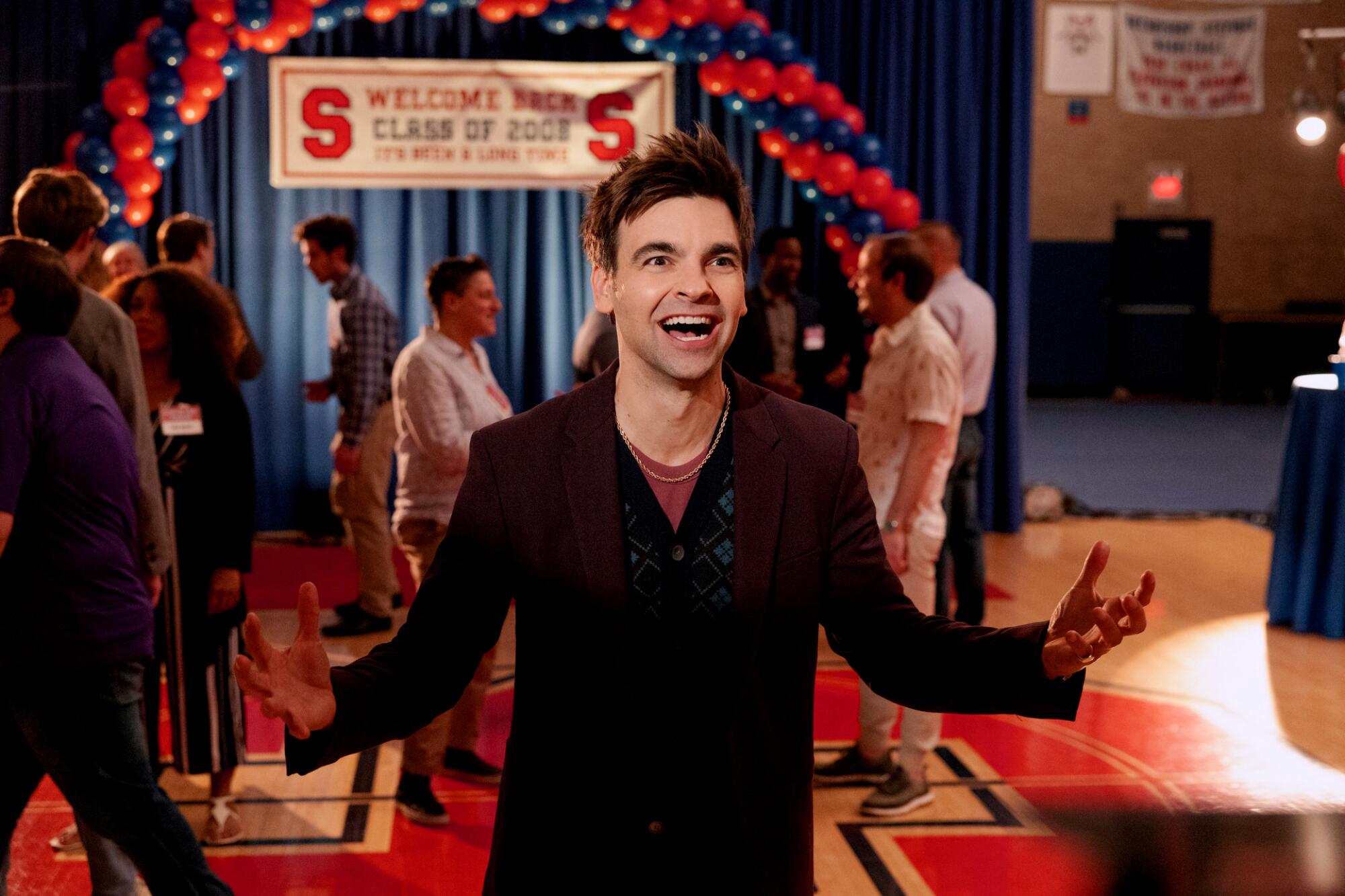
‘The Other Two’ (HBO)
Episode: “Brooke Hosts a Night of Undeniable Good” (written by Chris Kelly and Sarah Schneider)
Here’s the key: After falling face-first into a diaper filled with his own urine, Cary finally realizes what’s missing from his life.
The big deal: “It represents a pivotal moment for Cary — is he finally going to realize, after eight episodes of prioritizing work at the expense of personal relationships, that what he needs, what’s missing in his life is friendship, and community?” asks executive producer Andrew Singer in an email. “And then … nope! He learns the exact wrong lesson.”
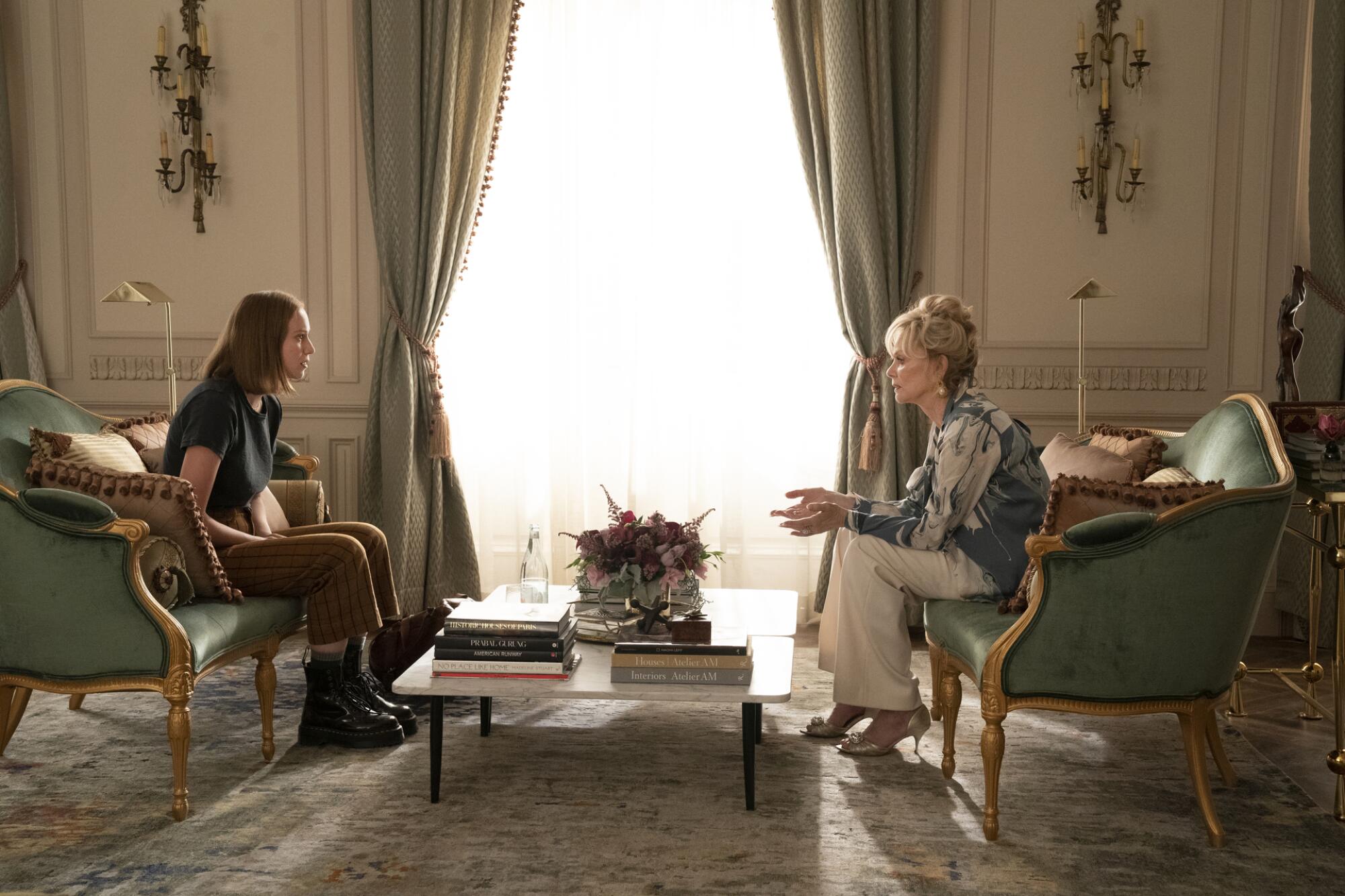
‘Hacks’ (HBO)
Episode: “Bulletproof” (written by Lucia Aniello, Paul W. Downs and Jen Statsky)
Here’s the key: Ava confronts Deborah with her lies and betrayal, then blackmails Deborah for the head writer position.
The big deal: “Ava has taken all the lessons she’s learned from Deborah over the course of three seasons and uses them against her, shifting the power dynamic completely,” write Aniello, Downs and Statsky in a joint email. “Deborah and Ava are the same — there is nothing more important to them than comedy. But it’s complicated because Ava is doing this for the good of the show and Deborah because she knows they’re better together.”
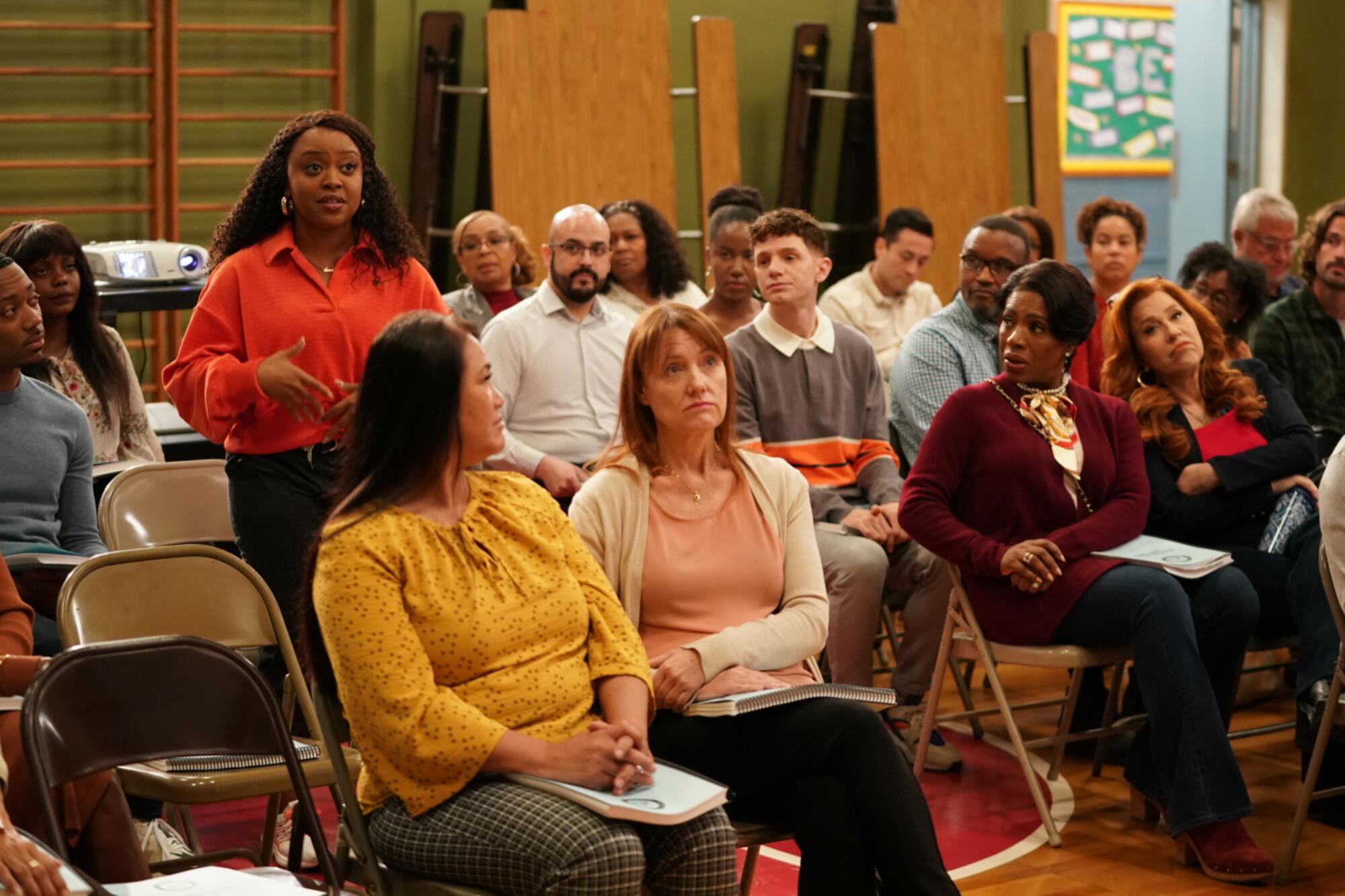
‘Abbott Elementary’ (ABC)
Episode: “Career Day” (written by Quinta Brunson)
Here’s the key: Janine reveals to Gregory that she’s received an offer to temporarily leave her job as a teacher and take a fellowship at the school district.
The big deal: “This scene … hits on the will-they/won’t-they nature of Gregory and Janine’s relationship and forces the characters to weigh how much they care for each other with how much they care about the job,” write co-showrunners Justin Halpern and Patrick Schumacker in an email. “The conflict between ambition and love is particularly pointed with these two 20-something characters trying to find their paths.”
DRAMA
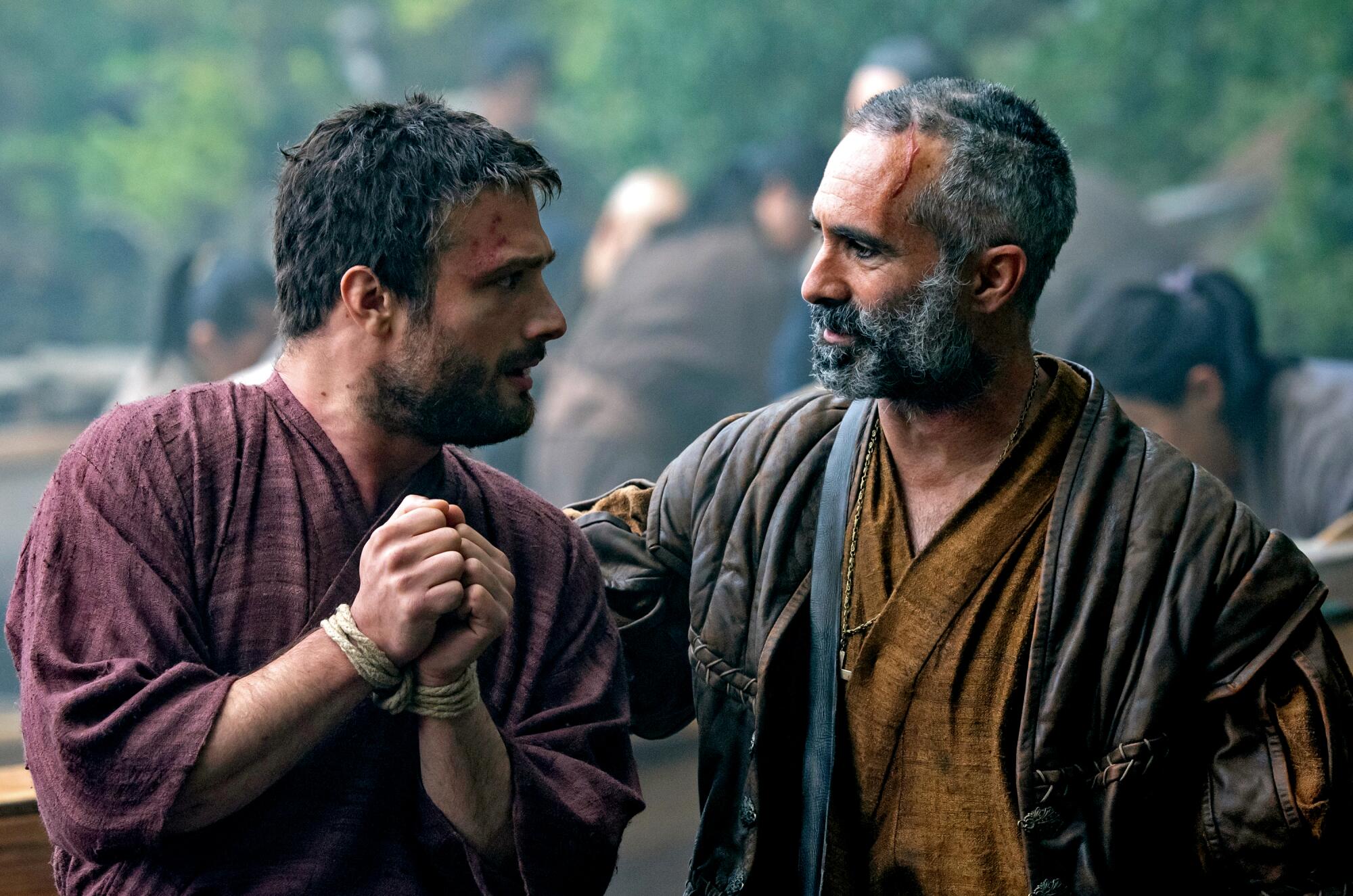
‘Shōgun’ (FX)
Episode: “Anjin” (written by Justin Marks and Rachel Kondo)
Here’s the key: What begins as a straightforward questioning of ship pilot John Blackthorne devolves into chaos as the foreigner challenges the priest translating for them.
The big deal: “We witness Blackthorne identifying his true enemy in this land: not the Japanese, nor his Portuguese rivals, but the idea of translation itself,” write Marks and Kondo in an email. “Blackthorne turning the tables on this adversarial priest is his greatest triumph in the series. The manipulation of language is, in effect, the central preoccupation of our show. Words matter.”
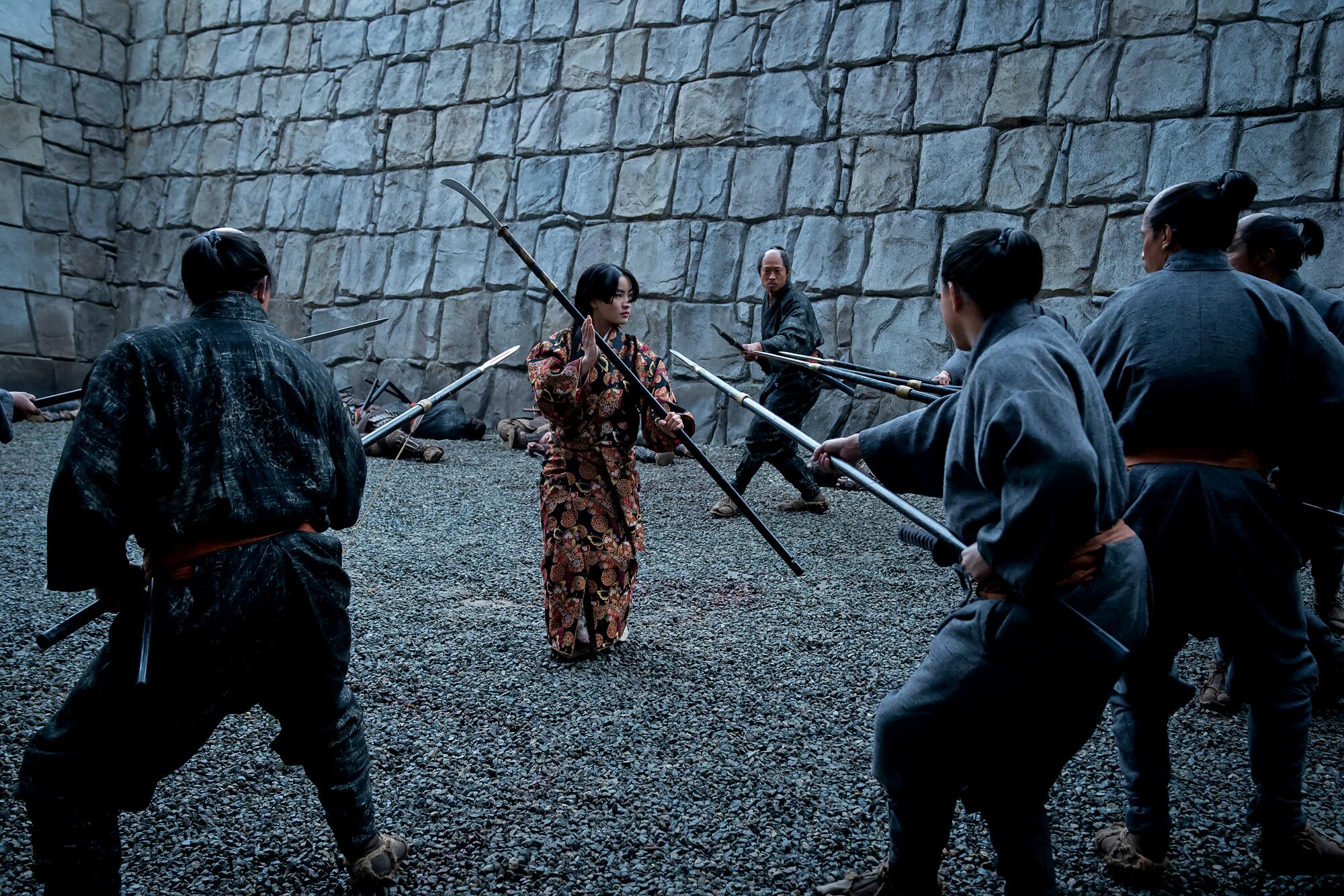
‘Shōgun’ (FX)
Episode: “Crimson Sky” (written by Rachel Kondo and Caillin Puente)
Here’s the key: Lady Mariko announces publicly to Lord Ishido and Lady Ochiba that she will not be held captive and creates a diplomatic crisis.
The big deal: “With her carefully chosen words, Mariko upends societal rules and reclaims her identity in the face of a system that has worked to shame her,” write Kondo and Puente in an email. “This scene is a point of no return. Mariko’s defiance has set her on an unstoppable trajectory that finally allows her to claim the purpose she has been seeking all her life.”
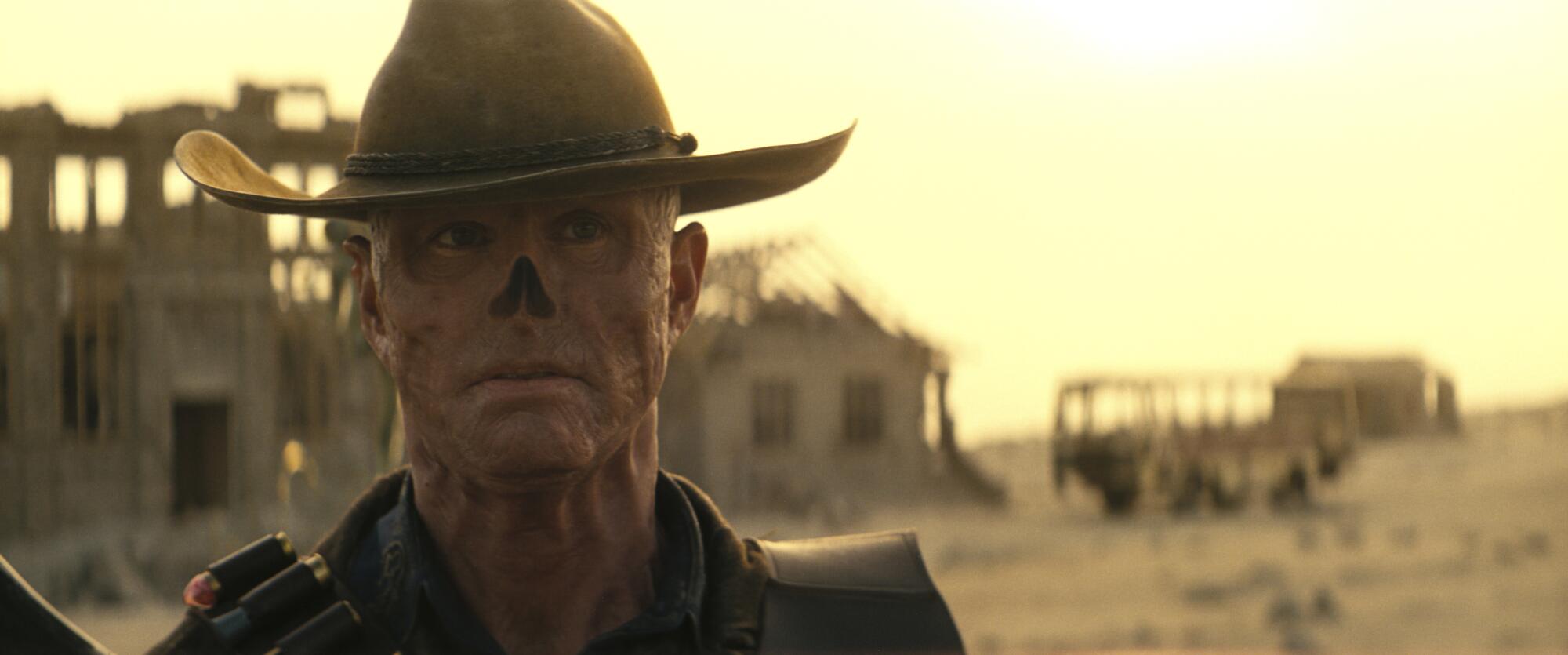
‘Fallout’ (Prime Video)
Episode: “The End” (written by Geneva Robertson-Dworet and Graham Wagner)
Here’s the key: A nuclear disaster not only ends the world — but interrupts a child’s birthday party, leaving a movie cowboy to try and escape destruction with his daughter.
The big deal: “It’s the 1950s, but not our 1950s, because there are robots, and you’re dropped into it,” says Wagner. Adds Robertson-Dworet, “It builds toward a man trying to escape, with his daughter, the beginning of a nuclear war on a horse, and that image is key to the show. It’s emotional. It’s a violent image. And also, how can you escape the world’s end on a horse?”

‘The Crown’ (Netflix)
Episode: “Ritz” (written by Peter Morgan and Meriel Sheibani-Clare)
Here’s the key: In a flashback to V-E Day in 1945, London is celebrating victory and princesses Margaret and Elizabeth escape the palace for the night. Margaret finds Elizabeth dancing with American GIs in the basement of the Ritz Hotel.
The big deal: “Young Elizabeth is more carefree in this scene than we have ever seen her before,” write Morgan and Sheibani-Clare in an email. “Margaret recognizes her sister’s fleeting happiness and allows her to enjoy it without interference. This is also the episode in which Princess Margaret finally dies, leaving Elizabeth alone — so the scene is a moving tribute to the extraordinary closeness of the two sisters, which is summed up by their joyful dance at the end.”
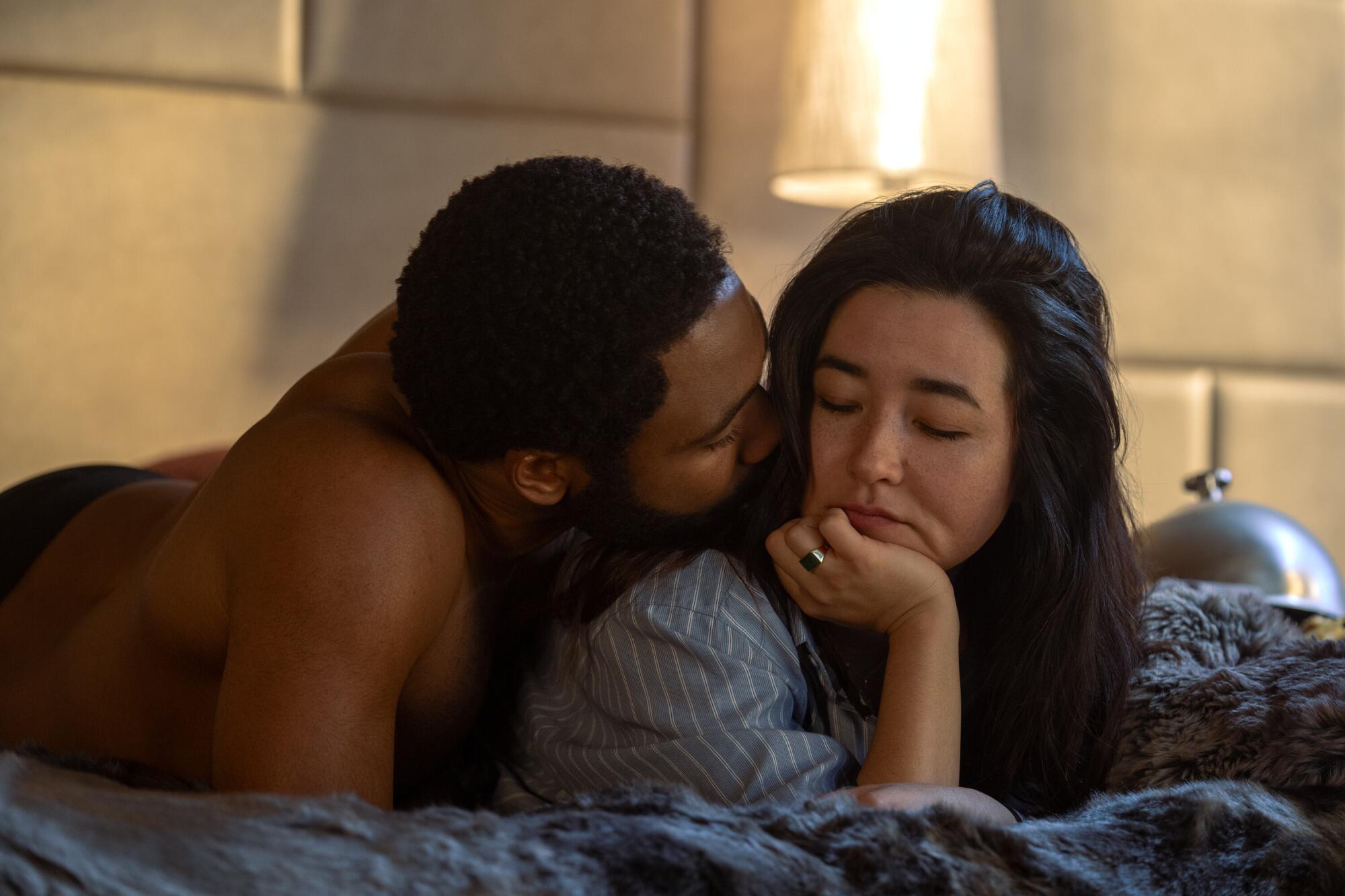
(Prime Video)
Episode: “First Date” (written by Francesca Sloane and Donald Glover)
Here’s the key: Newbie spies John and Jane arrive home after their first mission, and as they attempt to unwind, the weight of their new and dangerous life together sinks in.
The big deal: “This is a moment of real vulnerability — two very lonely people are admitting things to each other they’ve never shared with anyone else,” writes Sloane in an email. “Both in over their heads, they’re comforted to have someone to say goodnight to for the first time.”
Our BuzzMeter panel of veteran TV journalists and pundits offers their take on what will take the awards at the 2024 Emmys on Sept. 15.
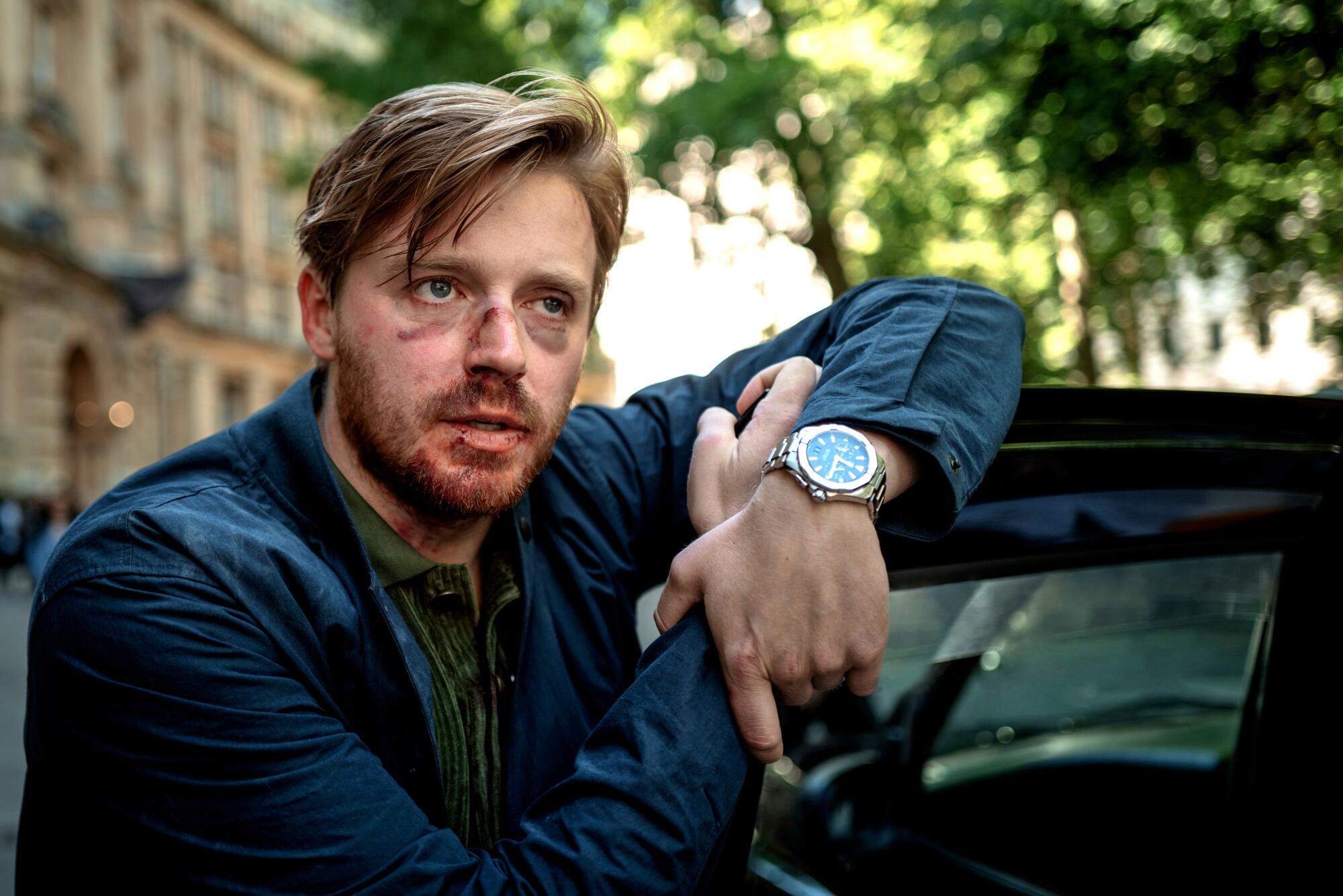
‘Slow Horses’ (Apple TV+)
Episode: “Negotiating With Tigers” (written by Will Smith)
Here’s the key: River realizes that his arch frenemy and former fellow agent, Spider, was in on the sting that caught him. Not only that, River was selected specifically because he was seen as an easy mark.
The big deal: As the climax of the River/Spider rivalry, it seems that Spider has the upper hand. “He even gloats, ‘The gods are shining on me today,’ little knowing that he is as out of his depth as River was and is about to meet his demise,” writes Smith in an email.
More to Read
From the Oscars to the Emmys.
Get the Envelope newsletter for exclusive awards season coverage, behind-the-scenes stories from the Envelope podcast and columnist Glenn Whipp’s must-read analysis.
You may occasionally receive promotional content from the Los Angeles Times.

